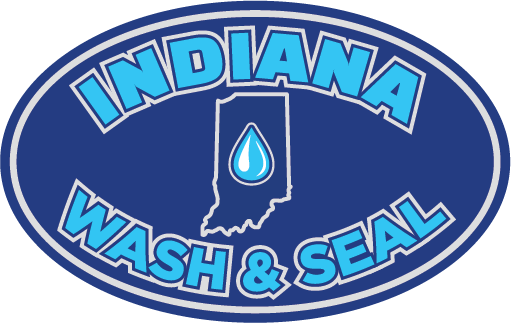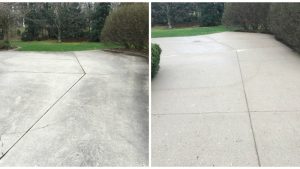Concrete is one of the most durable and versatile materials used in construction, but like any surface exposed to the elements, it can wear down over time. Sealing concrete is essential to protect it from moisture, chemicals, stains, and general wear and tear. A professional concrete sealing service ensures that your concrete surfaces are adequately protected and maintain their appearance and integrity for years to come. If you’re considering hiring a professional for this task, here’s what you can expect from the process.
Initial Consultation and Assessment
Before any work begins, a reputable concrete sealing service will typically conduct an initial consultation and assessment. According to our pals at Poly Lift, this step is crucial to determine the specific needs of your concrete surfaces.
- Site Evaluation: The service provider will visit your property to inspect the condition of the concrete. They’ll check for issues like cracks, spalling, stains, and any previous sealant applications. Understanding the current state of the concrete helps them recommend the best sealing solution.
- Customized Plan: Based on the assessment, the contractor will develop a customized plan. This plan may include recommendations for repairs, the type of sealant best suited for your surface, and any additional treatments that might enhance the protection or appearance of the concrete.
- Cost Estimate: During this phase, you’ll receive a detailed estimate for the service, including the cost of materials, labor, and any additional services that may be required, such as crack repair or surface cleaning.
Surface Preparation
Proper surface preparation is critical for the success of the sealing process. A professional concrete sealing service will take meticulous steps to prepare the concrete before applying the sealant.
- Cleaning: The concrete surface must be thoroughly cleaned to remove dirt, oil, grease, and other contaminants. Professional services typically use pressure washing or specialized cleaning solutions to ensure the surface is spotless. In some cases, they may also use chemical cleaners to remove stubborn stains or previous sealants.
- Repairs: If the concrete has cracks, chips, or other damage, these issues need to be addressed before sealing. The contractor will fill cracks, patch holes, and smooth uneven surfaces to ensure that the sealant adheres properly and provides uniform protection.
- Drying Time: After cleaning and repairs, the concrete must be allowed to dry completely. Moisture trapped beneath the sealant can lead to poor adhesion and potential damage, so professionals ensure the surface is thoroughly dry before proceeding.
Sealant Selection
Choosing the right sealant is crucial to the longevity and effectiveness of concrete protection. There are various types of sealants available, and a professional service will recommend the one that best suits your needs.
- Penetrating Sealants: These sealants are absorbed into the concrete, protecting within. They are ideal for outdoor surfaces like driveways and sidewalks, where protection from water and chemicals is essential. Penetrating sealants are also breathable, allowing moisture to escape from the concrete without causing damage.
- Acrylic Sealants: Acrylic sealants form a protective layer on the surface of the concrete, enhancing its appearance with a glossy finish. They are suitable for both indoor and outdoor applications and offer good protection against UV rays and weathering. However, they may require more frequent reapplication than other types.
- Epoxy and Polyurethane Sealants: These are high-performance sealants that provide a durable, glossy finish. They are commonly used in commercial and industrial settings where the concrete is subjected to heavy use and exposure to harsh chemicals. While they offer excellent protection, they can be more expensive and may require professional application due to their complexity.
Application Process
The application of the sealant is where the expertise of a professional service really shines. Proper application ensures that the sealant provides maximum protection and enhances the appearance of your concrete.
- Priming (if necessary): Some sealants require a primer to ensure better adhesion to the concrete. If this is the case, the contractor will apply the primer and allow it to dry before proceeding with the sealant.
- Sealant Application: The sealant is applied using tools like sprayers, rollers, or brushes, depending on the type of sealant and the surface area. Professionals ensure even coverage, avoiding bubbles, streaks, or missed spots. Multiple coats may be applied, depending on the desired level of protection and the type of sealant used.
- Attention to Detail: During application, special attention is given to edges, joints, and other areas that are prone to water infiltration or wear. The contractor will also ensure that the sealant is applied evenly to prevent pooling or over-application, which can lead to a patchy appearance or reduced effectiveness.
Curing and Final Inspection
After the sealant is applied, it needs time to cure properly. Curing is the process by which the sealant hardens and bonds with the concrete, providing a durable protective layer.
- Curing Time: The curing time can vary depending on the type of sealant used, the number of coats applied, and the weather conditions. A professional service will provide guidance on how long you should wait before using the sealed area. For example, you may need to avoid walking or driving on the surface for a certain period to ensure the sealant sets properly.
- Final Inspection: Once the sealant has cured, the contractor will conduct a final inspection to ensure that the application is flawless. They’ll check for any areas that may need touch-ups and ensure that the sealant has provided even coverage and the desired level of protection.
Maintenance Recommendations
To prolong the life of your newly sealed concrete, professionals will often provide maintenance recommendations.
- Regular Cleaning: While the sealant provides significant protection, regular cleaning is still important to maintain the appearance and integrity of the concrete. Professionals may recommend using mild detergents and avoiding harsh chemicals that could degrade the sealant over time.
- Reapplication Schedule: Depending on the type of sealant and the environmental conditions, reapplication may be necessary every few years. The service provider will offer advice on when to schedule the next sealing to ensure ongoing protection.
Conclusion
Hiring a professional concrete sealing service ensures that your concrete surfaces are well-protected and maintain their appearance for years to come. From the initial consultation and surface preparation to the application and final inspection, each step of the process is handled with expertise and care. By choosing the right sealant and following professional maintenance advice, you can significantly extend the lifespan of your concrete, prevent damage, and enhance the overall look of your property. Whether you’re sealing a driveway, patio, or commercial floor, the benefits of professional concrete sealing are clear: long-lasting protection, improved aesthetics, and peace of mind.



